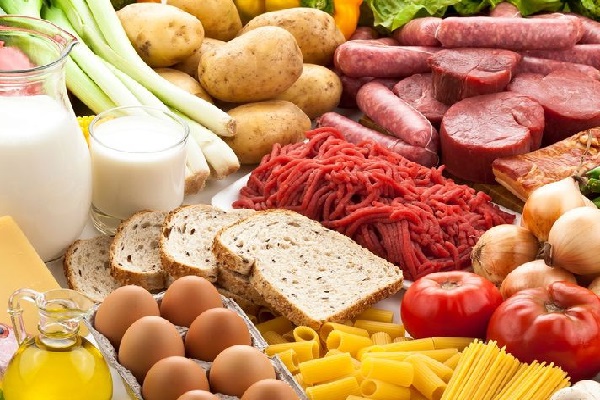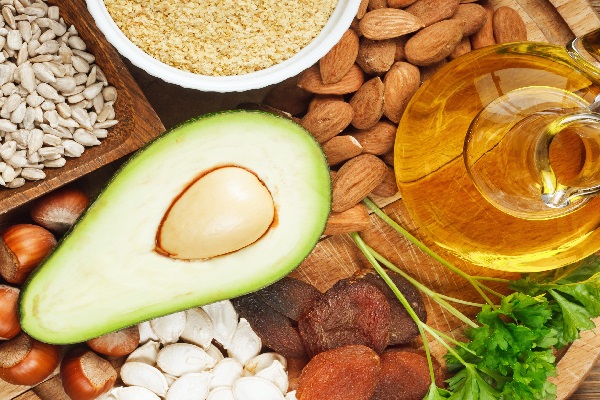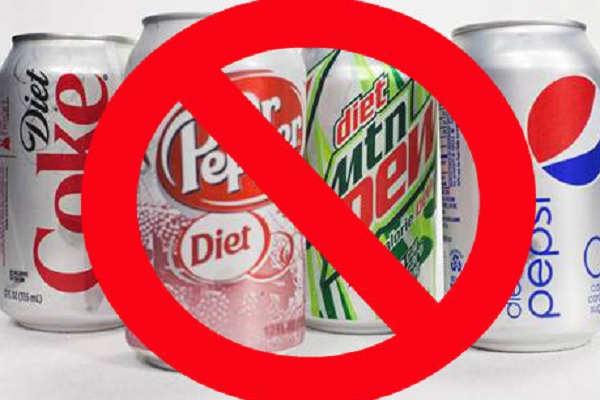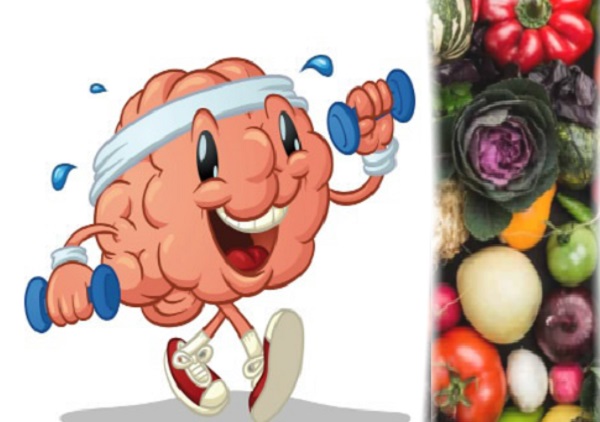
Vitamins are organic compounds required by an organism as a very important nutrient in limited amounts for the body to function properly. In total, thirteen vitamins are universally recognized at present but what happens when the body doesn’t have enough of them? Avitaminosis or lack of vitamins can occur when there are increased losses of vitamins which can occur in situations like chronic severe diarrhoea profuse sweating or increased need for vitamins during the time for rapid growth in pregnancy or childhood, fever or endocrine disorder. let’s take a look at 10 vitamin deficiency diseases that can affect your health and well-being…
1. NIGHT BLINDNESS
A form of night blindness is caused by a Vitamin A deficiency. This is a very rare condition which causes individuals to have trouble driving at night, seeing stars and walking into a darkened room. Vitamin A, also known as retinol, is responsible for producing pigments in the retina of the eye. Treatment includes taking Vitamin A supplements and consuming foods rich in Vitamin A such as carrots, whole milk, liver and fortified foods. Foods high in carotenoids, which are highly pigmented foods, are also rich in Vitamin A.
2. RICKETS
Rickets is a Vitamin D deficiency which is characterized by softened and deformed bones. Lack of vitamin D prevents the absorption of calcium and phosphorus in the gastrointestinal tract. Rickets is treated with Vitamin D supplements, getting adequate sunlight and consuming Vitamin D enriched foods.
3. ARIBOFLAVINOSIS
Ariboflavinosis is caused by a riboflavin (vitamin B2) deficiency. It results from the body not adequately absorbing this nutrient. Persons mostly affected by this disease are patients receiving dialysis, cancer patients and pregnant women. Individuals under prolonged stress and patients who’ve undergone major surgery may be at risk for ariboflavinosis. Symptoms are cracking of the lips, sore mouth and throat and itching and scaling skin. Other symptoms are insomnia, anaemia and photophobia, which is eye sensitivity to light. Treatment requires consuming food naturally high in riboflavin such as beef liver, tuna or eggs. Other foods that contain riboflavin are green leafy vegetables, dairy products and wheat germ.
4. SCURVY
Scurvy is a Vitamin C deficiency. Scurvy is pretty rare in the United States, but still occurs in some individuals, mostly in the elderly population and in alcoholics. Scurvy was well known among sailors in the 16th to 18th centuries who travelled the seas without bringing foods containing Vitamin C. The human body doesn’t manufacture Vitamin C, it has to be obtained from food. Symptoms of scurvy include bleeding gums, irritability and diarrhoea. Other symptoms include loss of appetite, protruding eyes and petechial, which are red pinpoint marks on the skin. Treatment for scurvy is to take Vitamin C supplements or eat foods rich in Vitamin C.
5. PELLAGRA
Pellagra is the result of niacin deficiency. Niacin is a B vitamin (B3) or tryptophan in the amino acid chain. This may be the result of severe alcoholism or a gastrointestinal disease which inhibits the body from absorbing this nutrient. Symptoms are diarrhoea, scaly skin sores, confusion and delusions. Inflamed mucous membranes are also a result of pellagra.
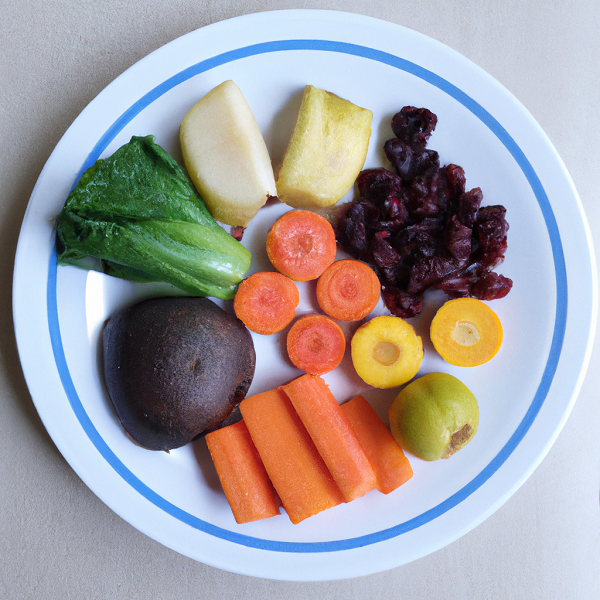
6. BIOTIN
Biotin deficiency is the result of the stomach not producing enough intestinal bacteria which manufacture biotin. This nutrient is necessary for processing carbohydrates and fatty acids in the body. Biotin deficiency can be the result of consuming too many egg whites since they contain a substance called avidin – which binds biotin. Infants may experience a biotin deficiency since they don’t produce enough intestinal bacteria. Frequent dieters may also experience this deficiency. Symptoms of biotin deficiency are anaemia, anorexia and dermatitis. Other symptoms are hyperaesthesia and paresthesia which is tingling and prickling sensations followed by numbness.
7. VITAMIN K DEFICIENCY
A Vitamin K deficiency causes bleeding and bruising problems. Vitamin K is an oil-soluble vitamin known as the clotting vitamin, blood will not clot without it. Vitamin K may help to promote strong bones in the elderly. This is a very rare deficiency but occurs when the body can’t absorb this nutrient from the intestinal tract. Treatment requires injections with Vitamin K and eating foods naturally high in it. Foods that contain Vitamin K are green leafy vegetables, meat and fish. Other foods are broccoli, cabbage and cereal. If a person takes medications to thin the blood, they should limit foods rich in Vitamin K as it will reverse the effects of the medication.
8. PERNICIOUS ANEMIA
Pernicious Anemia is the result the gastrointestinal tract not producing intrinsic factor which absorbs Vitamin B-12. This is fairly common in the elderly population. Symptoms of pernicious anaemia are confusion, shortness of breath and chronic fatigue. Other symptoms are weight loss, incontinence and numbness and tingling in fingers and toes. Symptoms of long-term pernicious anaemia include weight loss, iron deficiency and difficulty swallowing. Treatment includes having monthly B-12 injections.
9. PARESTHESIA
Paresthesia is the result of insufficient amounts of Vitamin B5 (Pantothenic Acid). Symptoms include numbness, tingling and prickly sensations. This vitamin helps to regulate the nervous system; lack of it also results in nervousness and agitation. Treatment involves taking a Vitamin B5 supplement and consuming foods high in this nutrient. Foods naturally high in Vitamin B5 are chicken, liver and kidney. Other foods are whole grains and vegetables. Vitamin B5 deficiency is a rare condition that mostly affects people that are malnourished or have gastrointestinal problems.
10. BERIBERI
Beriberi is a disease which results from a vitamin B-1 (thiamine) deficiency. Beriberi either affects the cardiovascular system or the nervous system. This is a disease that mostly affects alcoholics in the United States, since excessive alcohol makes it difficult for the body to absorb and store thiamine. Most people in the United State receive adequate amounts of thiamine in their diets. Symptoms of beriberi are neuropathy, which is loss of sensation in hands and feet, problems walking and muscular dysfunction of lower legs. Other symptoms are pain and discomfort, erratic eye movements and confusion and or speech problems. Some individuals with beriberi experience rapid heart rate, shortness of breath experienced at night and or swelling of the lower extremities. Beriberi is treated by taking thiamine supplements. Treatment by injection may be necessary before an individual can go on oral supplements.


